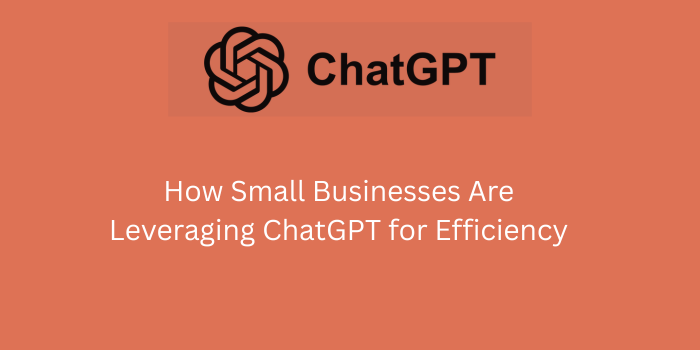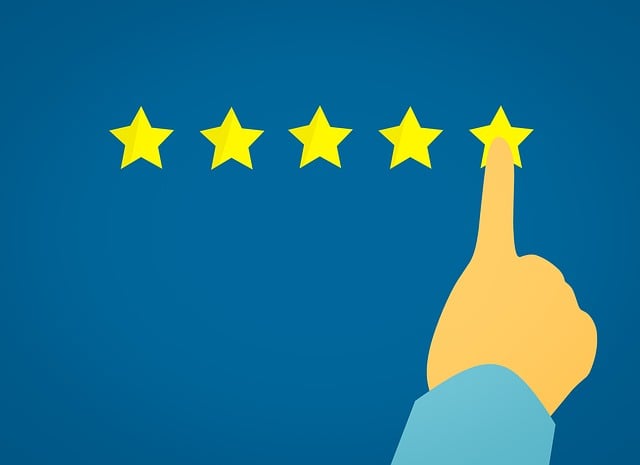In the fast-paced world of entrepreneurship, efficiency is everything. Small businesses often operate with limited resources, making productivity, automation, and time management absolutely crucial for survival and growth. That’s where artificial intelligence—particularly tools like ChatGPT—has emerged as a game changer. By leveraging ChatGPT for small business efficiency, entrepreneurs can automate tasks, boost productivity, and focus more on strategic growth.
Whether you’re managing marketing, customer service, content creation, or internal communication, ChatGPT offers an intelligent solution to streamline your daily operations. As one of the most accessible and powerful AI tools for entrepreneurs, it enables even the smallest teams to automate small business tasks with ease. In this blog post, we’ll explore how small businesses are using ChatGPT across various functions to save time, cut costs, and improve overall performance.
What is ChatGPT?
ChatGPT is an advanced AI-powered language model developed by OpenAI, designed to understand and generate human-like responses in natural language. As a powerful AI writing assistant, it has quickly become a go-to solution for small businesses, entrepreneurs, and content creators looking to improve productivity and streamline their workflows.
ChatGPT is capable of performing a wide range of tasks, from generating creative content ideas and social media posts to writing professional emails, product descriptions, and even basic computer code. Its natural language processing capabilities make it an ideal tool for customer service automation, internal communication, and personalized marketing campaigns. For small businesses in particular, ChatGPT for small business efficiency is a game changer—it enables teams to handle more work with fewer resources by automating repetitive and time-consuming tasks.
Whether you’re drafting blog posts, responding to customer queries, or creating engaging sales copy, ChatGPT can save hours of manual work each week. Its flexibility and ease of use make it accessible to non-technical users while delivering consistent, high-quality results. In today’s competitive market, tools like ChatGPT allow small businesses to stay agile, reduce costs, and focus more on strategic growth through smart automation and scalable AI support.
Why ChatGPT is a Game-Changer for Small Businesses
Small businesses often operate with limited budgets, small teams, and tight schedules—making efficiency and smart resource management essential. This is where ChatGPT stands out as a game-changing solution.
By leveraging AI for small businesses, owners and entrepreneurs can automate daily operations such as customer communication, content creation, and administrative tasks without hiring additional staff. ChatGPT enables businesses to respond faster to customers, publish more content, and handle repetitive tasks effortlessly.
As a cost-effective AI tool, it allows even the smallest ventures to compete with larger competitors in terms of digital presence and customer engagement. From writing high-converting marketing copy to drafting legal templates and generating business reports, ChatGPT streamlines operations and reduces the mental load on business owners. Its adaptability across industries—from e-commerce and real estate to consulting and coaching—makes it an indispensable tool in today’s tech-driven market. With ChatGPT automation, small businesses can focus more on strategic planning, growth, and delivering real value to customers, while the AI handles the routine behind-the-scenes work.
Use Cases of ChatGPT in Small Business Operations
ChatGPT is revolutionizing how small businesses operate by providing intelligent automation across multiple departments. From marketing and sales to customer support and administration, small business owners are leveraging this AI tool to handle daily operations more efficiently.
Whether it’s automating responses to customer inquiries, creating content at scale, or generating business ideas on the fly, the use cases of ChatGPT for small business operations are both practical and diverse. By reducing manual workloads and improving response times, ChatGPT empowers small teams to achieve more with less effort.
1. Content Creation & Marketing
One of the most popular applications of ChatGPT for small businesses is in content marketing. From drafting blog posts and social media captions to writing newsletters and press releases, ChatGPT can help marketers save hours of work each week.
Examples:
- Creating SEO-optimized blog posts
- Generating social media content calendars
- Writing ad copy for Facebook, Instagram, and Google Ads
- Developing email marketing campaigns
2. Customer Service and Support
AI chatbots powered by ChatGPT can provide fast, round-the-clock support to customers. These bots can handle FAQs, track orders, schedule appointments, and even escalate complex issues to human agents.
Benefits:
- Improved customer experience
- Reduced response times
- Lowered support costs
3. Administrative Assistance
Small business owners often juggle a lot. ChatGPT can act as a virtual assistant to help with tasks like:
- Drafting business emails
- Creating meeting agendas
- Managing to-do lists
- Taking notes from meetings
4. Sales Support
ChatGPT can help in lead generation and customer engagement by writing cold emails, follow-up messages, and sales pitches. It can even role-play sales conversations for training new team members.
5. Research and Idea Generation
Need help brainstorming product names, business strategies, or blog topics? ChatGPT offers instant inspiration based on real-world trends and insights.
6. Human Resources and Hiring
ChatGPT can assist in creating job descriptions, screening resumes (to some extent), and writing onboarding documents for new hires.
Real-World Examples
Let’s take a look at how some real small businesses are using ChatGPT:
- Freelancers: Use ChatGPT to write client proposals, manage invoices, and optimize portfolio content.
- E-commerce stores: Automate customer inquiries, generate product descriptions, and draft promotional emails.
- Marketing agencies: Brainstorm campaigns, generate SEO reports, and produce branded content at scale.
Best Practices for Using ChatGPT Efficiently
To maximize the benefits of ChatGPT for small business operations, it’s important to follow best practices that ensure consistent, high-quality results. While ChatGPT is a powerful AI tool, its effectiveness greatly depends on how you interact with it. Clear instructions, well-structured prompts, and thoughtful integration into your existing workflows can significantly enhance productivity and streamline daily tasks. These best practices will help you unlock ChatGPT’s full potential for content creation, customer support, marketing automation, and more.
-
-
- Provide clear instructions: The more specific your prompts, the more accurate and relevant the output will be, leading to more effective use of the tool.
- Structure prompts effectively: Well-organized queries help guide ChatGPT in generating high-quality, targeted responses tailored to your business needs.
- Integrate ChatGPT into existing workflows: Seamlessly combine ChatGPT with your current tools and processes for smooth, automated operations that fit your business model.
- Use ChatGPT for repetitive tasks: Automate routine tasks such as content generation, customer service, and scheduling, saving time and improving overall efficiency.
- Refine outputs as needed: Always review and adjust the results generated by ChatGPT to ensure they align with your brand tone, accuracy, and style.
- Regularly update prompts: Keep refining and adjusting your prompts to match evolving business needs, ensuring that ChatGPT continues to deliver optimal performance.
-
Risks and Limitations
Despite its benefits, ChatGPT isn’t perfect. Here are a few caveats:
-
- It may generate inaccurate or outdated information.
- It doesn’t replace human creativity or judgment in sensitive contexts.
- Privacy concerns must be managed, especially when inputting business-sensitive data.
Tools and Integrations
To maximize ChatGPT’s potential, consider integrating it with tools like:
- Zapier: Automate workflows across multiple apps
- Notion: Create living documents and content calendars
- Slack: Embed AI directly into team conversations
- Shopify/WooCommerce: Automate product copy and customer messages
The Future of AI in Small Business
As AI continues to evolve, we can expect even more powerful integrations, such as AI-generated video content, real-time customer emotion analysis, and predictive business insights. Staying ahead of this curve will give small businesses a competitive edge.
Conclusion
ChatGPT for small business efficiency is no longer a futuristic concept—it’s a current reality. Whether you’re looking to boost productivity, automate routine tasks, or improve customer interactions, ChatGPT offers a versatile solution that’s accessible to even the leanest startups.
By adopting AI tools like ChatGPT, small businesses can save time, reduce costs, and focus more on strategic growth. Now is the time to integrate AI into your business workflow and reap the benefits.






